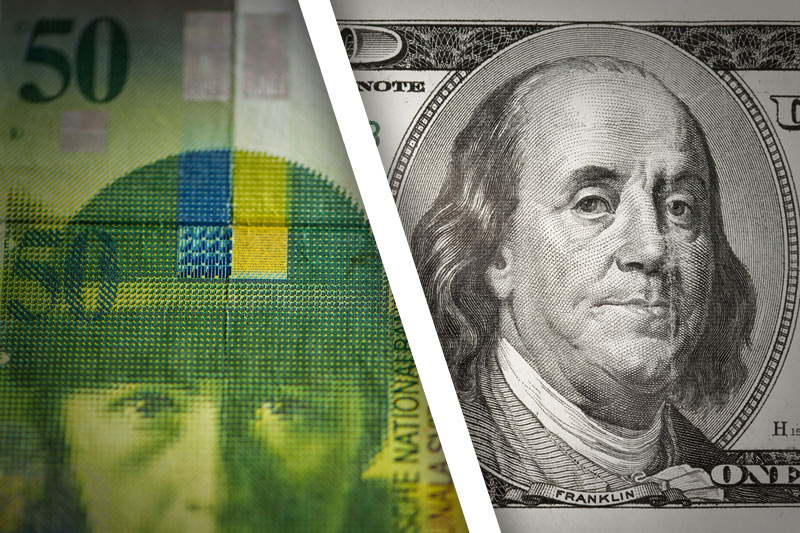Investing.com - The U.S. dollar was lower against the Swiss franc on Thursday, as robust corporate earnings and rising commodity prices bolstered demand for higher-yielding assets.
USD/CHF hit 0.9748 during European morning trade, the pair’s lowest since July 10; the pair subsequently consolidated at 0.9762, slipping 0.15%.
The pair was likely to find support at 0.9683, the low of July 6 and resistance at 0.9792, the session high.
Investor sentiment was buoyed by upbeat corporate earnings, which lifted global equities markets.
The dollar remained under pressure after Federal Reserve Chairman Ben Bernanke said Wednesday that the central bank was prepared to take further action to support the U.S. economy if the jobs market failed to show improvement, but stopped short of explicitly indicating if additional stimulus measures are imminent.
Investors were looking ahead to a German vote on approving the country’s part in an aid package for Spanish banks later in the day.
Earlier Thursday, Spain saw demand weaken and borrowing costs rise sharply at an auction of two, five and seven-year government bonds, fuelling fears that the country could be locked out of international credit markets.
The Swissie was little changed against the euro, with EUR/CHF dipping 0.01% to 1.2010.
Later Thursday, the U.S. was to publish government data on initial jobless claims, as well as reports on existing home sales and manufacturing activity in Philadelphia.
USD/CHF hit 0.9748 during European morning trade, the pair’s lowest since July 10; the pair subsequently consolidated at 0.9762, slipping 0.15%.
The pair was likely to find support at 0.9683, the low of July 6 and resistance at 0.9792, the session high.
Investor sentiment was buoyed by upbeat corporate earnings, which lifted global equities markets.
The dollar remained under pressure after Federal Reserve Chairman Ben Bernanke said Wednesday that the central bank was prepared to take further action to support the U.S. economy if the jobs market failed to show improvement, but stopped short of explicitly indicating if additional stimulus measures are imminent.
Investors were looking ahead to a German vote on approving the country’s part in an aid package for Spanish banks later in the day.
Earlier Thursday, Spain saw demand weaken and borrowing costs rise sharply at an auction of two, five and seven-year government bonds, fuelling fears that the country could be locked out of international credit markets.
The Swissie was little changed against the euro, with EUR/CHF dipping 0.01% to 1.2010.
Later Thursday, the U.S. was to publish government data on initial jobless claims, as well as reports on existing home sales and manufacturing activity in Philadelphia.
